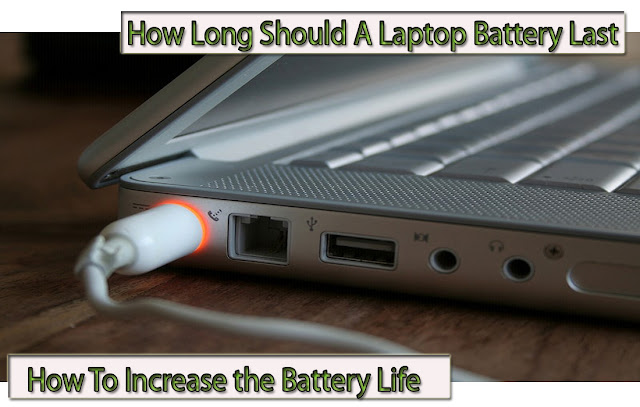How Long Should A Laptop Battery Last And How To Increase the Battery Life

The lifespan of a laptop battery can vary depending on factors such as battery quality, usage patterns, and overall care. On average, a laptop battery can last between 2 to 4 years before it starts to lose significant capacity and requires replacement.
To increase the battery life and maximize its longevity, here are some tips:
By following these tips and adopting good battery maintenance practices, you can increase the battery life of your laptop and ensure it performs optimally over time.

The lifespan of a laptop battery can vary depending on factors such as battery quality, usage patterns, and overall care. On average, a laptop battery can last between 2 to 4 years before it starts to lose significant capacity and requires replacement.
To increase the battery life and maximize its longevity, here are some tips:
- Adjust Power Settings: Optimize your laptop's power settings to reduce battery usage. Lower the screen brightness, shorten sleep or idle times, and enable power-saving modes when running on battery power. This helps conserve battery life and extends its runtime.
- Use Battery Saving Features: Take advantage of built-in battery-saving features offered by your operating system or manufacturer. These features can automatically adjust power settings based on usage patterns and prolong battery life.
- Limit Background Processes: Reduce the number of unnecessary background processes and applications running on your laptop. These processes consume power and contribute to battery drain. Close unused applications and disable unnecessary startup programs.
- Manage Wireless Connectivity: Wireless features such as Wi-Fi, Bluetooth, and cellular data can consume significant battery power. Turn off these features when not in use or disable them temporarily to extend battery life.
- Minimize External Devices: Disconnect or remove peripherals and external devices that are not in use. USB devices, external hard drives, and other accessories draw power from the laptop and reduce battery life.
- Avoid Extreme Temperatures: High temperatures can degrade the battery, so avoid exposing your laptop to excessive heat. Similarly, extremely cold temperatures can affect battery performance. Keep your laptop within a moderate temperature range for optimal battery health.
- Avoid Deep Discharges: Frequent deep discharges (fully draining the battery) can shorten its lifespan. Lithium-ion batteries, commonly used in laptops, prefer partial discharge cycles. Keep the battery level between 20% and 80% for better battery longevity.
- Regularly Update BIOS and Drivers: Keeping your laptop's BIOS and drivers up to date can help improve battery performance. Check the manufacturer's website for any available updates that may optimize power management.
- Properly Store the Battery: If you need to store your laptop for an extended period, store the battery with a charge level between 20% and 80%. Storing a battery at full or empty for a long time can lead to capacity loss.
- Perform Battery Calibration: Calibrate your laptop battery periodically to ensure accurate reporting of its charge level. Follow the manufacturer's guidelines for calibrating the battery to optimize its performance.
By following these tips and adopting good battery maintenance practices, you can increase the battery life of your laptop and ensure it performs optimally over time.
